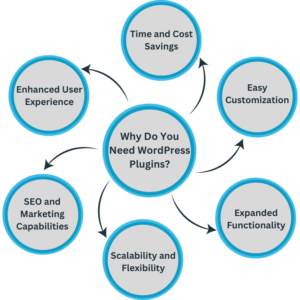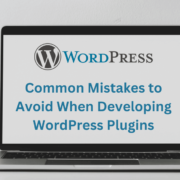Testing and Debugging Your WordPress Plugins: Best Practices
Developing WordPress plugins is an intricate process that requires attention to detail and rigorous testing. Thoroughly testing and debugging your plugins is crucial to ensure they function as intended, are compatible with different environments, and provide a seamless user experience. This article will help you to deliver high-quality, reliable plugins to your users by exploring the best practices for testing, debugging, and evaluating WordPress plugins.
Plan Your Testing Strategy:
Before testing, create a strategy outlining your goals, target audience, and testing methodologies. Identify the key functionalities, scenarios, and use cases your plugin should cover. A well-defined strategy sets a solid foundation for comprehensive testing.
Perform Unit Testing:
Unit testing involves isolating individual components or units of your plugin’s code. Use tools like PHPUnit to write and execute unit tests. Unit tests help identify any bugs or issues at the code level, ensuring the stability and functionality of your plugin’s core logic.
Conduct Integration Testing:
Integration testing verifies that your plugin works seamlessly with other components of the WordPress ecosystem, such as themes, plugins, and different versions of WordPress itself. Test for compatibility with popular themes and plugins, ensuring your plugin does not conflict with or break their functionality.
Test in Different Environments:
WordPress websites run on various hosting environments, browsers, and devices. Test your plugin in different hosting environments (shared, VPS, etc.), popular browsers (Chrome, Firefox, Safari, etc.), and devices (desktop, mobile, tablet) to ensure consistent functionality and compatibility across platforms.
Use Automated Testing Tools:
Leverage automated testing tools like Selenium or Codeception to streamline and automate your testing process. These tools can help simulate user interactions, perform regression testing, and identify. Any issues or regressions introduced during plugin updates or code changes.
Implement User Acceptance Testing (UAT):
User Acceptance Testing involves testing your plugin with real users to gather feedback and identify usability issues. Recruit a group of beta testers or early adopters to use your plugin and provide feedback on its functionality, user interface, and overall user experience.
Debugging with WP_DEBUG:
Enable the WP_DEBUG feature in WordPress to display error messages and warnings. This helps identify any underlying issues or potential bugs in your plugin’s code. WP_DEBUG logs error messages, deprecated functions, and other notices, assisting in debugging and improving code quality.
Utilize Debugging Tools and Logs:
WordPress provides debugging tools and logs, such as the WP_DEBUG_LOG constant and the error_log() function, to capture and log errors and debugging information. Utilize these tools to trace and analyze issues, helping you identify and resolve bugs efficiently.
Use a Version Control System:
Employ a version control system, such as Git, to track changes, manage different code versions, and facilitate collaboration. Version control allows you to revert to previous code versions, isolate and fix bugs, and work on new features without impacting the stability of your plugin.
Continuously Monitor and Update:
After releasing your plugin, continue monitoring its performance, user feedback, and bug reports. Actively address reported issues, release updates, and provide timely support to maintain a reliable and user-friendly plugin.
Testing and debugging are integral parts of the WordPress plugin development process. By following these best practices, including planning your testing strategy, performing unit and integration testing, testing in different environments, utilizing automated testing tools, conducting user acceptance testing, enabling debugging features, using logging and debugging tools, leveraging version control systems, and continuously monitoring and updating your plugin. You can deliver high-quality, stable, and reliable WordPress plugins that provide an excellent user experience.



























